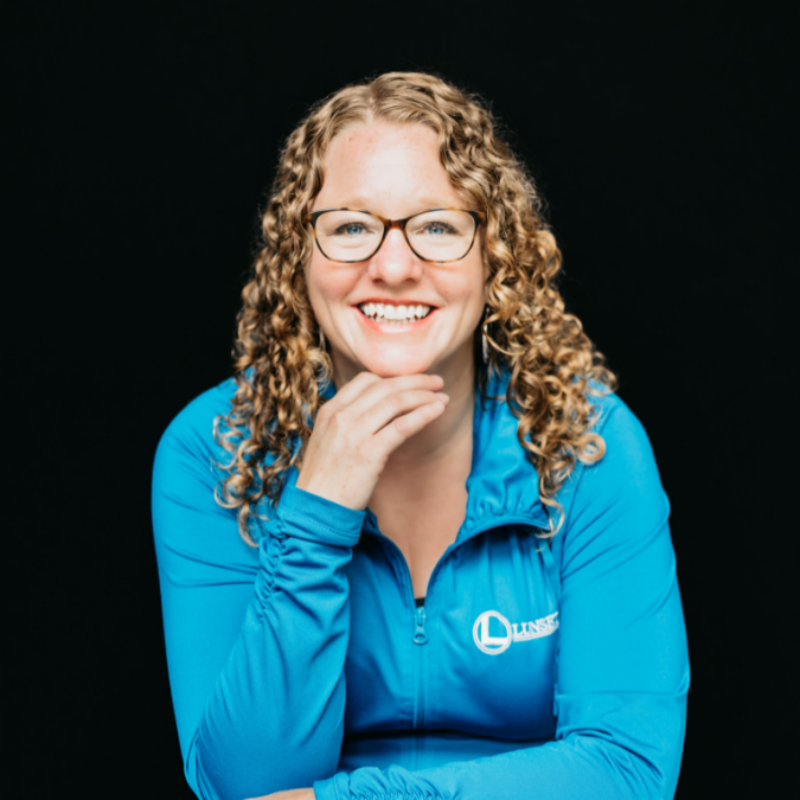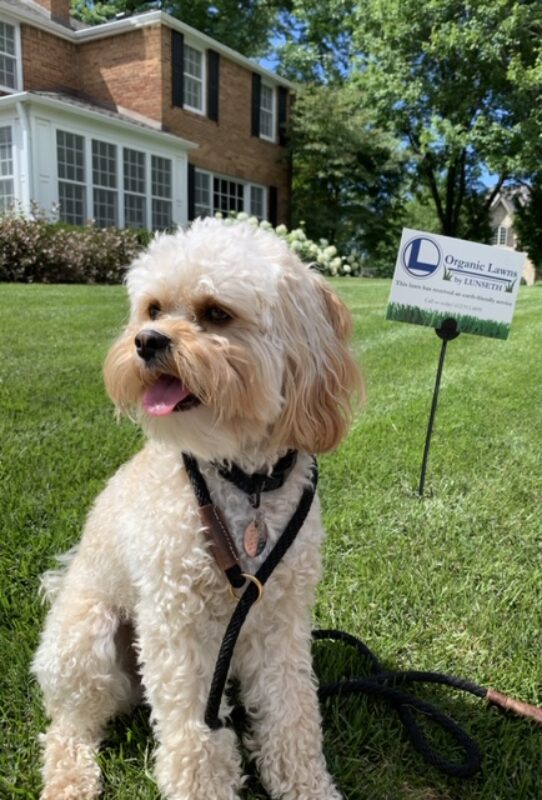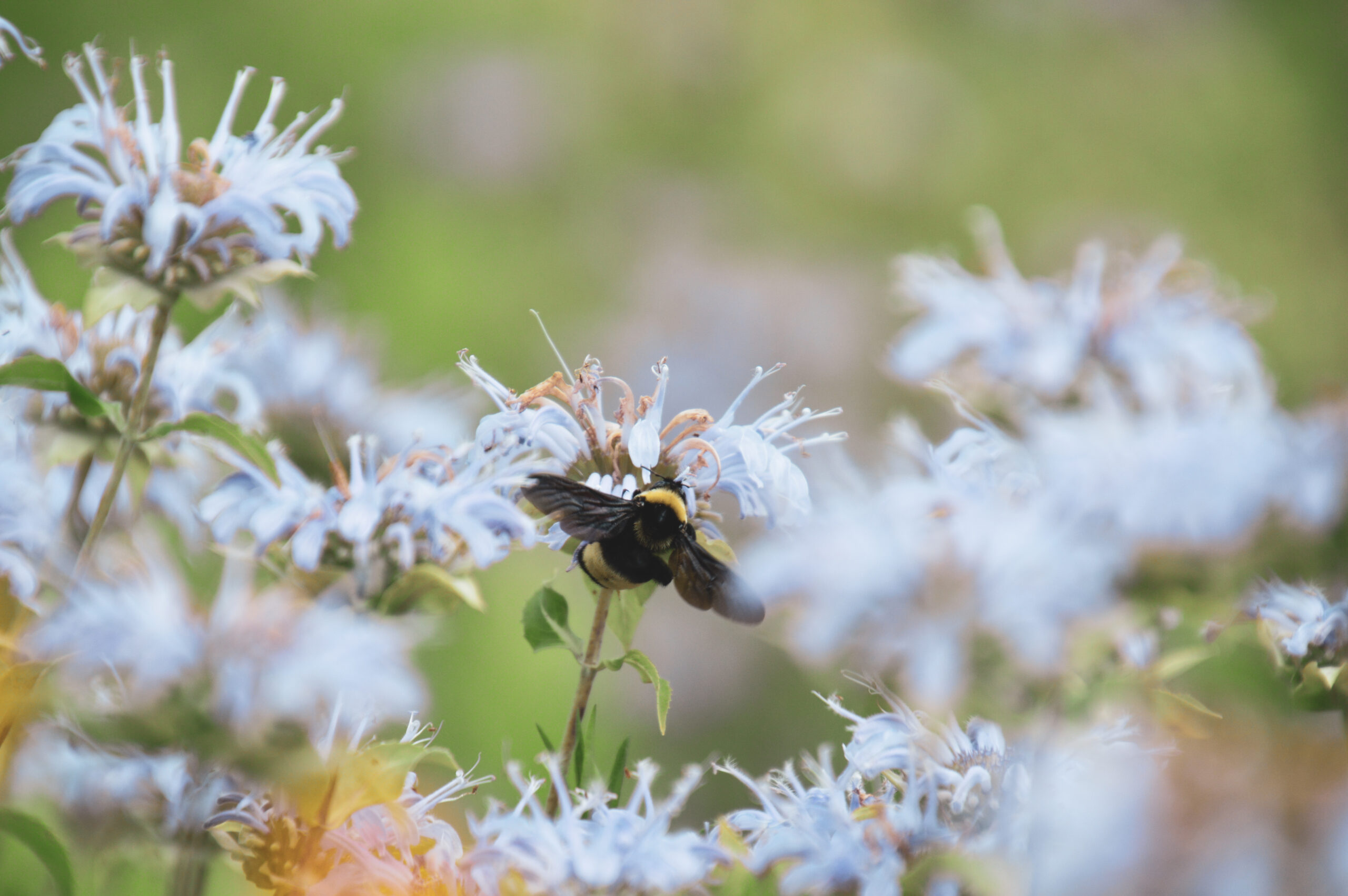
Want to take care of lawn areas in your outdoor space more sustainably? Spring is a great time to get started. Our team spoke with Shay Lunseth from Blue Thumb sponsor Organic Lawns by LUNSETH about “going organic” to support biodiversity, clean water, and a safer place for our kids and pets to play.
Blue Thumb: Tell us about Organic Lawns by LUNSETH. How did your company get started, and what is its mission?
Shay Lunseth: We started offering organic lawn care in 2010 as an alternative to traditional, chemical-based lawn treatments. Our goal was to provide a service that met the needs of households where at least one person wanted to eliminate synthetic chemicals while still maintaining a beautiful lawn. Today, we educate homeowners about making chemical-free choices for their lawns, whether they use our services or do it themselves. Our mission is to create healthier outdoor spaces that benefit not just homeowners, but also local water sources, wildlife, and pollinators.
 Blue Thumb: What’s the case for going organic? How do you convince someone who is unsure or hesitant?
Blue Thumb: What’s the case for going organic? How do you convince someone who is unsure or hesitant?
SL: Our approach is about education. Organic lawn care benefits insects, microorganisms, birds, and our water. But for many people, the strongest motivation comes from personal connections. If someone in your household—whether a family member or a pet—would benefit from a chemical-free lawn, that’s often reason enough to make the switch.
We also encourage people to consider the bigger picture: the health of their neighborhood and the ability of their local environment to withstand climate change. Even if you don’t want to spend money on organic products, making changes to your lawn care practices like mowing high, watering deeply and infrequently, tolerating some weeds, and avoiding unnecessary chemical treatments can make a significant difference.
Blue Thumb: For people who have native plantings alongside their lawns, how does organic lawn care support those native plantings?
 SL: Lawns and native plantings can absolutely support each other, and it all starts with soil health. Whether you’re maintaining a lawn or growing native plants, healthy soil is key. It makes no sense to have a pristine, heavily-treated lawn next to a native planting. Avoiding chemicals improves biodiversity and soil quality, benefiting all the plants in your yard.
SL: Lawns and native plantings can absolutely support each other, and it all starts with soil health. Whether you’re maintaining a lawn or growing native plants, healthy soil is key. It makes no sense to have a pristine, heavily-treated lawn next to a native planting. Avoiding chemicals improves biodiversity and soil quality, benefiting all the plants in your yard.
We also encourage people to view lawns as purposeful spaces. If supporting pollinators is your goal, native perennials are the best option, but a pollinator-friendly lawn—with clover and other flowering plants—can also play a role. Some homeowners prefer a traditional lawn aesthetic, so in those cases, we recommend focusing pollinator efforts in landscaping beds.
Blue Thumb: Can someone switch to organic lawn care at any time, or is there an ideal time to start?
SL: You can start organic lawn care anytime! Some people think they need to get rid of weeds first before switching, but that’s not necessary. We encourage homeowners to begin whenever they make the decision—it’s a long-term process, not a one-time fix.
For those looking to maximize results, early spring is a great time to start. We use corn gluten meal as a natural pre-emergent to reduce summer annual weeds. It prevents about 25% of new weeds in the first year, with better control over time. In late spring, we apply liquid iron as a post-emergent weed control. The key is setting realistic expectations: organic lawn care is about improving soil health over time, leading to fewer weeds naturally.
 Blue Thumb: Are there any new or particularly exciting services you’re offering this year?
Blue Thumb: Are there any new or particularly exciting services you’re offering this year?
SL: Yes! This year, we’re launching electric mowing services. We partnered with another provider last year, and now we’re bringing the service in-house. This allows us to offer a full-season, environmentally-friendly lawn care approach, from mowing to soil health management. We’ve also enhanced our compost tea brewing process, which boosts microbial activity in the soil. We had great results last year and are excited to continue refining this approach.
Blue Thumb: Some homeowners prefer to go the DIY route. What are the advantages of working with your team instead?
SL: We fully support DIY lawn care and often share advice for those who want to do it themselves. However, working with us offers a few key advantages:
- Proper application of products: Corn gluten meal, for example, is an effective pre-emergent, but only when applied at the correct rate and timing. We buy in bulk and can apply it for about the same cost as a homeowner purchasing it themselves.
- Aeration and seeding expertise: Aeration in the fall is labor-intensive and requires specialized equipment. We ensure proper core aeration for optimal seed-to-soil contact, improving seeding success.
- Customized grass seed blends: We take pride in selecting the best grass varieties for Minnesota’s climate, adjusting our blends each season. Homeowners often struggle with choosing the right seed or getting good germination.
- Organic fertilization & nutrient planning: Many retail fertilizers contain unnecessary additives or aren’t suited for our climate. We help clients navigate these choices and apply the right products at the right time.
Some clients use our services exclusively, while others supplement our treatments with DIY efforts. We’re happy to provide guidance either way!
Whether you go fully organic or take small steps to reduce chemical inputs, every effort counts. Thank you, Organic Lawns by LUNSETH, for your support as a Blue Thumb partner and sponsor!
Related Resources:
- Organic Lawns by LUNSETH website
- Request a free quote from Organic Lawns by LUNSETH (serving the Twin Cities Metro Area and Rochester area)
- Blue Thumb Turf Alternatives information
- Blue Thumb Soil Health 101 resource
